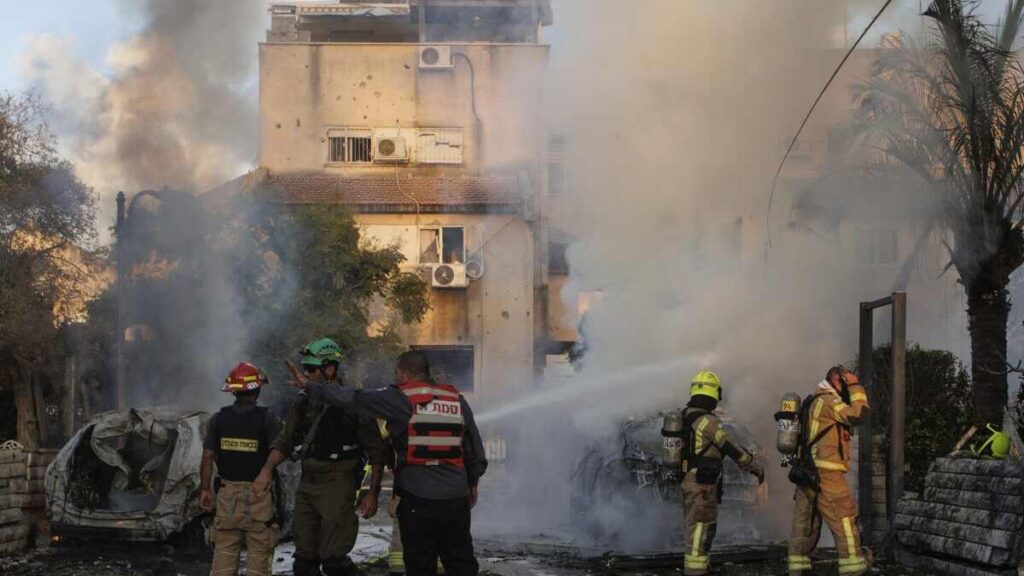NepalIsrael.com, Jerusalem. Hezbollah ramped up its threats against Israel, launching rockets toward the northern city of Haifa and warning of potential strikes on targets throughout the country, including central, northern, and southern regions. Despite facing intense bombardment of its strongholds in Lebanon, the group vowed it would not be defeated.
In a fiery speech, Hezbollah’s deputy chief, Naim Qassem, stated that since Israel had targeted all of Lebanon, Hezbollah was justified in retaliating against any location within Israel. “We will not be defeated,” he declared, calling on Israel’s population to push for a ceasefire as the only way to end the violence.
As the conflict between Hezbollah and Israel intensifies, Lebanon’s Prime Minister Najib Mikati said his government is prepared to strengthen its military presence in the south following any ceasefire agreement. He added that Israeli forces had been making brief incursions across the Lebanese border. Security at Beirut’s only airport has been tightened to prevent any pretext for Israeli attacks, according to Mikati.
The situation is also escalating in Gaza, where Israel has intensified its offensive. The United Nations warned that the humanitarian crisis there is the worst it has been since the conflict erupted over a year ago, with aid severely restricted.
Meanwhile, tensions between Israel and Iran continue to rise. In retaliation for a September 27 Israeli airstrike in Beirut that killed Hezbollah leader Sayyed Hassan Nasrallah and Iranian general Abbas Nilforoushan, Iran launched around 200 missiles at Israel on October 1. Israel is now considering how to respond, with Prime Minister Benjamin Netanyahu insisting that any decisions will be made based on Israel’s national interest, despite warnings from the U.S. to avoid targeting Iran’s nuclear or oil infrastructure.
Oil prices, which spiked following Iran’s missile attack, dropped over five percent after reports suggested Israel is only considering strikes on military targets, according to the Washington Post.
In Lebanon, the conflict continues to exact a heavy toll. Israeli airstrikes on Tuesday hit several areas, including the eastern Bekaa Valley, where a hospital in Baalbek was forced to close. Residents described the bombardment as the worst they had seen since the 2006 Israel-Hezbollah war. An Israeli strike on the village of Aito on Monday killed at least 21 people, including women and children, prompting the U.N. to call for an independent investigation.
The war in Lebanon has claimed over 1,350 lives and displaced nearly 700,000 people, with the true death toll likely higher, according to health ministry figures and humanitarian organizations. On Monday alone, 41 people were killed in Israeli strikes across Lebanon, further deepening the crisis.




